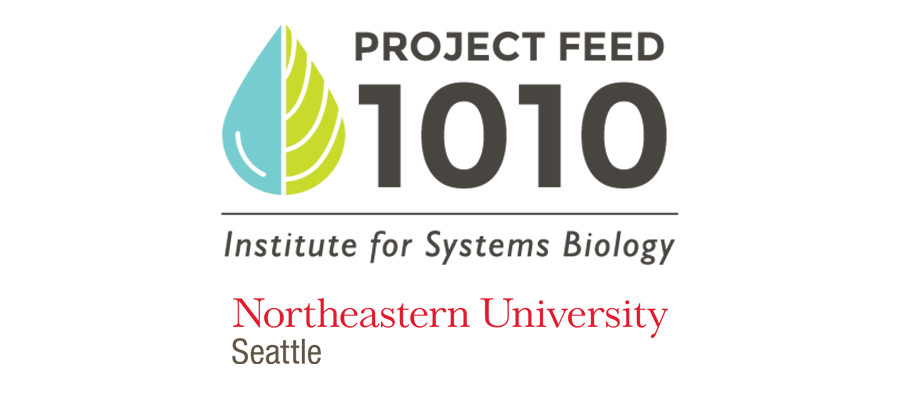Project Feed 1010 partnership gives graduate students ‘start-up’ experience through advanced software development course

The winter term brings MS in Computer Science and Bioinformatics graduate students from Northeastern University’s Boston and Seattle campuses together to collaborate on a new Advanced Software Development course.
“Creating complex software applications based on evolving requirements is a key skill that all graduate level computer scientists should have,” said Dr. Ian Gorton, Director of Computer Science at Northeastern University-Seattle. Each year, a group of up to 20 students spread across Seattle and Boston will work with external clients to build and deliver a software system.
This year a partnership formed with the Institute for Systems Biology (ISB) to build the core software collection, analysis and collaboration technology for their Aquaponics research initiative, Project Feed 1010.
“Teaching engineering principles and practices through real project experience, as well as exposing students to a range of contemporary, cool technologies, is a highly effective approach to graduate education.” – Dr. Ian Gorton, Director of Computer Science at Northeastern University-Seattle
“ISB’s Project Feed 1010 is building a global, crowd-sourced network of educators, students, researchers and farmers to optimize and scale-up sustainable agriculture practices and educate the future scientific workforce,” ISB described the partnership in their release, Project Feed 1010 Partners with Northeastern University to Advance Sustainable Agriculture.
The fast-paced and interactive course, which is structured like a start-up company, is designed so that students work as part of a programming team to integrate academic concepts and practical design experience. Students will be working on Web, iOS and Android apps to develop advanced data analytics systems, engineer user interfaces, implement light sensors, build social networking components and incorporate data visualization.
Dr. Gorton explains that R&D projects like Aquaponics evolve rapidly as the research and deployments are rolled out to user communities, requiring students to learn principles and practices and engineer systems in the face of uncertainty. Collaboration across time and space is also essential for success, and the course emphasizes technology supported communication tools and collaboration technologies to give students experience working together to engineer complex products.
“Teaching engineering principles and practices through real project experience, as well as exposing students to a range of contemporary, cool technologies, is a highly effective approach to graduate education,” said Dr. Gorton. “These projects serve our education needs and at the same time can produce useful technologies for our partners. It’s a win-win situation.”




